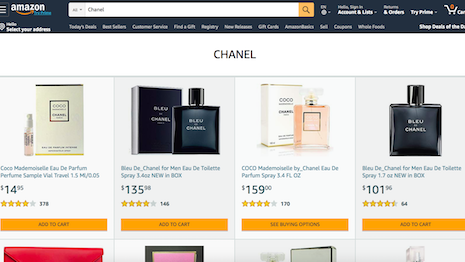By Brandon Verblow
Around the world, the spread of the coronavirus is a source of growing anxiety.
First and foremost, it is a health concern.
Secondarily, it presents challenges for business leaders, including marketers.
Unease over the virus has the potential to impact purchasing behavior to varying degrees.
Economists are already beginning to cut their GDP growth forecasts.
Advertising spend is correlated with GDP growth, so any reduction in GDP growth will hurt advertising growth.
Coronavirus will precipitate a short-term pullback in search advertising . . .
If advertising growth slows, search advertising will likely see a larger growth deceleration than the overall advertising market.
Digital advertising, such as search advertising, is easier to cancel than other forms of advertising such as TV advertising, of which a considerable portion is bought in advance during the upfronts.
Search is more vulnerable to a drop in travel, which will be one of the hardest-hit sectors.
In 2018, travel constituted 9.6 percent of paid search advertising in the U.S. compared to 6.5 percent of total advertising spend.
Search is a lower-funnel marketing activity.
Because search advertising is more closely linked to purchase decisions, any decline in purchases will be more readily felt in search advertising.
Fewer product searches will mean fewer search ad clicks.
In contrast, some marketers may be more likely to sustain ad spending on brand awareness even as purchases take a temporary dip.
At the same time, some of the search growth deceleration could be partly offset by:
- A mix shift to more online retail purchases of certain items such as beauty and apparel, particularly if retailers heed Forrester’s advice to promote online purchasing over in-store experiences.
- Greater emphasis by some marketers on lower-funnel marketing efforts to sustain short-term sales at the expense of long-term brand building.
. . . But the longer-term outlook remains healthy
Despite this backdrop of near-term uncertainty, our recently published “Forrester Analytics: Search Marketing Forecast, 2019 To 2024 (US)” report highlights that the longer-term outlook for search advertising remains healthy.
Even though we finalized this report before the coronavirus became a significant issue, the takeaways from the report remain intact:
- Amazon is breathing new life into the search advertising market by creating a whole new category of search ads within ecommerce channels. Even though Google still dominates, Amazon became the second-largest search engine by revenue in the U.S. in 2018.
- Smartphones will drive the majority of growth in search ad spend, as they provide fresh opportunities for local businesses to reach customers on the go in their moment of need. At the same time, PC search advertising spend will remain sizable, as a large share of consumers express a preference for using a PC when conducting certain activities.
- Voice assistant speaker adoption is high, but our forecast shows that only a fraction of consumers will use their speakers in a way that would allow for any meaningful voice search advertising, which does not yet exist.
In the meantime, spend on other types of voice assistant marketing is advancing.
It has been 23 years since Yahoo launched the first search advertisement.
One might assume, therefore, that the search market should be plateauing, but it remains as dynamic as ever.
Two years ago, we wrote that search advertising was “on the cusp of a renaissance.”
Once the negative impact of the coronavirus subsides, our assumption is that this renaissance will proceed in full force.
 Brandon Verblow is forecast analyst at Forrester Research
Brandon Verblow is forecast analyst at Forrester Research
Brandon Verblow is forecast analyst at Forrester Research, Cambridge, MA. Published with permission from Forrester Research.
{"ct":"eXx56JVr7PF7BjKwGDLIISA0FHdOuu8gAdNro90fAe3CRZ75dSTZvMQm3gNWOZNdq4XCgz7b7KeMNQnxfZkNs8Doo3\/fNYxtXANi1th1uBH3vjtaFAFiaDq1QO6gIyK\/Z58vvFy1O3DBoNQnosCxxT6lhxq\/ja5A+lMeyiXyeTQx\/eDKGqVZtLRAAGS9SCPZ0qDTFtAkmDyG2vXkQ5JG147FmFG9lsuX4AuEv1Ldq9L4C7szOIDqIZO71o3z2f5yIcYR90n3RscOzKZxVUU8Wir9XU9mG9\/7tIfa+iCnsrUSt8BTnKRj2IWr\/QvG7ZO062A9ndiL0nxiW6qPGw4YxEy4QbjPURRkSGPsT7RqRyAziMZiH6vkO9FyL1KAOFXHjnAPnd9Zk81ZEBDwsTUTnLevCXlcap2x4eZbTrR8peahVuINBLJrfPDWP2DH6pGvMpVTlWqry83oFHElHGkfLoxUtA4nhSjWPoVDByY7uKJtvgXU26lpu8QdB54V2NCyqh9RskISGcFQ0G2AnHVOz0EtkXttUjqoGfTmdRjq6B5hQUy1qWSma54HOUBbu3VhKTos9vWG\/KCGgZMkigDeu3ywhNmio\/3Ijm4f8pBZ6\/s4ERI9qA9qXAiSkl3PWArHehwCA3KUPKc8MyiKkK1J05lfLwZIfudCww4LPe0OghsJUDez8coPj5R+MzDZKOplh0Rw6SyzQ+qWaug2dSV3ZvfbNJy0L\/tZ2\/Oemz9W6c0+jUe\/RPr7yZLaOob7gKTkEeLsLszWhe3QcXYExMJx5e8bN05KhfeGqPFCjjjLkcdO1dynsakweiZ0F1cy1fASuaUko5beMa4eVfUGP7ryWYEbekO96BJnh3fqUuzM9AUYGTUfPgLssuXARdzMS4G1UV79xlDPq0f7CyGTalmEQgBdiZCNqRP5ZIO9LI6ntSZrWpUDSdZvQGukVqqrNiMWvvUQzHFUHg79hLWmYcDZQfVOW+4g4XiOrTvkXrmun0TLiuAIM7VlX4\/d6z32Rnt+sYZpJBOz17kMQi0gpx1OrNIX+uQMqnWO9mkpWMO9BtQgGXWxQulLdmlqx6Ajf0VGVZE83uRLN+ayT0lZeeNxE6Tly+2Kt8JYzL+UzUtDTtrY+oggRK1Cjro\/P4xNDez1T1KpRxlHu5Dzz5\/o+QcP8JbIgrLN5raF4oNPOKKovUrPyyKHAghYFbpWUP7FuFJZ4\/RdIqNSKOEfUtPBplZbnXzR2+kRfhQesbrIQAef5vPRcUgQVUNc7vIcMQXJ4f6S8lc9HjEvz\/cETlgpidu4VDTQGiNSAL228jXmsFCN2GAc2GJsebEBDK363iOJ\/FqnCUTnL4VGcZBLjZxIU9pUrxWA9gRFrNKseNyQCSOrpBP3DwxruhCb\/b7dMb4YfYUOxCl253wvREHfN9mbE\/G1H1TBar6e4fECFGAWdmYGiOrlEDoNVznt\/t8k\/GUSNHAd6BGRZxxyOc3PfrYYXKEd5rWuhXvcACr8NFh4bQ7Hbb1W7mY3S8jUTNOn6u+YMyvWtI3ywSEEOThsLjc4zlo4Z2Wv0ooRzwRgIw9JbqAPVfr501+UuJt1arOjIJYYKmt5u9VEjR5atZ3AChogUM76UD0Hy3\/SVe7dIeM03wlXH1F3FU8XTi0HBOMlvvKdQOd5RVlIUkbkeCRACJfCRN035i7O3ScNcHvctAeAmMEdxYsfesVk1XgofsYaahwRXase36li3t5htFiW7HeMeAeSdzvA2nKhUL7djQtXFte0tAdmneL49mlDiYhepLK84cOUXGwtumnTKfqWVR8nfZtVaZkujAPSs8rx1\/Po0XTpujzKZ7fPjDob57\/HOlj+AOOjWs3pkFKwMpY5Lykfa+MkFDiPRAR\/\/NFNJOn3D0jz5kMKLKzvfY10rHeP9suo6Gi0QTYZR8s609bqkhb\/3pmhNdHJIqzkRDGk07PnOsSoQqQQWy3bbx9NOwCX8NOVDBBOXGDltB3BDkzFdpxP41TxWzwC8XOF99x+3ipXh8DTTStS8DhHLXIfQ7d05GoNRHFfJMju3CfISUwvMh\/4C9PaqV8Psp8+PnFyenbu4cZZcQFQfzHEC9dcGG0H7jYxnTeuxzbHGBz\/P7obe9GVRgPcM3MhdPL14a133MtayW6GydDYp5qKBxXmK3k6VIeaXMSwgj9EdF02unSh51G5mZ9cNSMxb43l8rI1bCtZrUxFKIFzozjr3UMtjHWFd2kP0KNC5n7nvbrYTpHaKCKDgNXpJJh4DlozZ6KmgUfDoG\/kZCoBSOqy5GdEFRR4awpLk7R8rpTgXJ6EJ6KyJEEsdMIxy8pcnK2r1Jb+hjkhi6YrStx9scfwi7SqgFn+Ki3MZ5\/SV\/KgrkTobihBC36xcIGqHsjpS82TaamZiEAHq6bQwG95k\/JhcIFyhwALARhteEHiA6Y2hVA7WeZ4ZDdxUVhpznCEvSKfklJJfFiyE4RI0Sqe9XKDeYLXzvf5s+b4g4E8KpfM8EQzICbakd3Nsglhuu2xiKJNgVKp0v1uObyUfwZ5HHAMY6oQi4O8gg4DwUxJ4dzZjo417j5vfxiUUFLrljvSxU9ACmdSODKS91JR8Lpdri4WkZEY1cyUAaqBUlgrCPrGyAu5Q4iItB0zOxg1IU7lmVZ1dT5qyUkMUX7NPEZBiWNTAqgD9iULO4JQ6VXKgxngzWNWPrjGqSFiIXIEqBYGOD6qYh\/ulCgN\/uxeANnwE6xwmeAtVb+GPueDIHIMEM6FSBzBdK5kk1eTQTU+RxbbDGMzg0gobwlPssZ2H28+X+P0ZS3AwzDdzNtFg9CrNm2JKAT90Y\/e4bKnRtIdwCGJKNNK4GvgUIUsP5y0+MrsT1bJh+YqFm2g3lTso1etwRLNVf9fSUUj6UcE2NqYiLgHmSBhIoOuHLxAvPoSG\/+YL9NVeMatXK4bwjkrUDpvxWIdxfWv1zNTTzIdMkhJkNhMIjZMvhw9\/DJqxxuSOebfZuJP4kzdxt90Hdrbi8nbBAdzXE9zqEg7IUyWjcvTy3SOM5fs06XQQVokQdrE\/hkI+WGtyq9fViLDx\/CtVFHAWzrbT83pt\/L0Z9sDJSaIs2gcGwWcXhvnEGIwVwm3e3Dg93pApevZKLQVpNv1+DhIlHrpnPfyS0ALFbYNmX\/0xLF4KCgnJbw+Y9mtqnPnn8q6T0GgmK5NcL0ksWoGfnmOqZpv\/WiLgKZjNnUBsXL2RRC3FDdmqdmfEEE9FWcea8jdpr2CJAoCgb+21bJkM0iwToEpWwUvsfyROd8A1KM43Kq0eLiYuZJxs3uZvd+wIhtRzX72+7MTBTy9St3H3tbyf+\/QvKnywmSm8Kz20j1xKY8v\/2iONy8yRF7BMEDwa9LESmGbWqZEW2\/UHTSJxJKjRLkRzlh48fhn3ZSUV+os1\/JTTIILYyPyqJ+exunp7BvJwdVkThy5XC8\/Mn09KyK5uB9TSjHSCQWBp0\/7wQ4GtjJvjAl6lmrtT+BJtG7BkP+y+IZWOxdkrSilcSrigDHWSPYAboZw3I\/bsjpCp24\/H+C6NaFvlvHftt88hpgJUAhhxNjJL97qKNOv\/xTEtfcWKOgf0i4h\/L0Ku58wEKtRPaFl5ctUrENCDjvrD6hhCN1vMcaHfO2kuNak+31oEoZmePsk2jOe5hgY+W7F+3g1XM\/lT0UrM8zwDEuUBYFAQ6eqHyfQZwEw7ceCgz5Neb0Ixd2KdQVT1MicKFdhLU5zrs9tkJW+8wIzFVAd8Ol37E2wrl0LVvOuvf10R3u3YEbB9x5J1bD\/z+nRQ6TPFoRnWBr+VxQrB22E9TeVmHknYDhhR8fNPLEUvxUXxDrB3uDq3wlUMshoESaAptdHaYmpfF6fXJt0Mqt8X7z8+bEU7bpaC7AhfhgFA6kUzdyTnqKQC2mFbZIx7DHqwzLJZSHbpYFvdRtbcMcyNL262skrC7Oi+ps8y0+CHbhIq3y0MWW0Wt7aodo04WyI\/meA3brjtEDIYpb7D33mqE1lFbUJ9mnw22WP52VetOrKReCBuFHEKj2N5ON1xetJwQLmq6UWM55LBRyFJB7EndqQkCiQpBAn0dtbRICTz2x0PTgNNduGb4gJAnh5TRqo+dpO2Z6T0jH0ksnlq1+rxBzcN4j+tqh+RRPVRHrs7EBXQyDp\/LPgOpwEA7SkfNXxmarTF+i+TekErm0zAdooPxPjzP69NAsCHHtOfnJjLmpUouYZFS9WciyjK1Hu3SjtFsal3Fv7n\/sfLvFa+b9QdrNsAkCG6qDlfCswiGiuwnm6XV6NwgENqesZfvs75iiMhq62E1IMdYqiJCJ9FvzB4dkaKxrWb\/3GDtcaqzx6jSfpvOfaiGPZGMpeg7YtRos\/Vv1AgRMdOhLQy0CR1omNJHSVGNdIUTCEB+O1ZFTSMCq9PQu7yjNlcC\/MIrCaz6tJ2Ny6ig7jAI7XQogZPqW6cud4zGhbXpoUTsnZhWyyf+c1h0vnuTvLE3AiGVX+FlOhLYH39HZJOZXzA9msqvAKXtj6xKOoSn4wJIHIGbITZlrwPfPMni7frxNE7S8ml6Whcfgl0UgidLEL7ogWwqaDq03WEFAaldd\/oUdPqBbrVgjakjAzkUymFDTifUD8pJqQtfvywN7UqKl22GMAPLT9JZ90of76ZHqr0XWlwIRpcwsx6kFiUxmLLKo8kZtXCNzyH95WCjegKRfXRBsr3CCmXuADx6P2McccFTTr3P251Jqei3FsN8Skq76YHBNY633NvPhsx4fsGANHAnqQC4\/Bc2ObMBZsnLfJ\/aTxR6AyXXALfCbYfUxujBhijmjMFtvZAPIJN\/1fQ5XBZfUvT7bjXx0vnzNkTfnpmzIM6siGOy+GHDITrzlnI7\/jRtnfuWG3HEhn7MIv2kgmy\/MX5BdcVN8pFJpyj3y6DWffuCeI5ADIsqc+Hn+fioiXXgUz\/4uxSHwOomJgDGUAHc2\/FQDualjxRf9yn2AT24Wwic0tjiuCa4BXKF\/GD7Y8FNDtSMO4iXHlF+yogMl7vi3BYW9bXE\/\/9pFieB6pM+YyYV7xUAPG7TBbYfYoWcdu3KC0u8AiB26rPgWgMQtZkinEZXDOvUtsL5W\/e52UWYGRdJA3wdqklzcjIwhbp5OxBLOQdTWqhdc9sSLF1tSrwDhxitNK3xst+AlWcyFi8ofC9DZy1gQSHX0w8LhX\/bZ\/HmQN87Y3tw6cIJwQHpyAsGnF\/Q\/6N7pvSC4UXKdfHzGRF+p8+A3oVOQuh5AZy4ybqdNUeXKINSktc7hBArGlJEbHZ6nPhDgWNZRGEzJiJFUD4cqSMmcxbJTfB7tAjppAgzeTcQrhvUrZ7QKN3go72VxBPFfqsqzuZLNiuz\/SwY2adeiNibm0FnhzAKVy4+CO2JixH5jk7R79cqzzdcxavvPRUbo5Eh5qWHG9rfQwfJkFlSRoLVttn+XcyEbplsQ3\/uLC13v3Wlggfjr2aC3vpV2UoDbX3neBlz\/q4vN\/hOhGTCTsGrnn69zov\/on6XXGiWQj6\/tz3AHHLXjC44qdz6\/X5R+cNQKPBhQCF6pPl7fiVETkAaipncogAd8QJiju65Jr2oGWyAUzos6\/KyjHU6UyXPXDtkT8pt2O3PKljGekMCp48Pms2FieXPyvoLD4e+9eorD8C2TjKo0XEL+g5Safhr3DLv5UcSxVNfabDB4Hhpp+hNMQD0pQRKIbxMmGODNgd3pnvnyAXpkkl0NV+uTmspDUhG+9F\/GjXCQ8VGKwqpt6KHLVNjr6Y5N14wQdRsGNek7hpSHWD4JSq9IvpHz4GlyNt88QtvPrqn8HuCT6izvd12AjRfwDzbosmdCRcB6JszfmJoYkZv7zTbZpEyEUXLMMlme2FpczRZV2tM2psPdrjq+HzUe0C36zZT7eNhDyxv0wg51ty11+cUzhOptJuUJ76YU7Y6caLicD54fc1ApLraRvBBvpDQl0maARtWuxm9JcIg9QGqCMder7KDWZXBPW2ljU9+L7n7nW1YzP4fQv9cROBz0AavwA\/jGNT74gPER5TdkJYVeiQYg0CkJ65v\/teHP+\/0QezPm\/wTOe0Ht3GsvrG66zb2vsUSYs13xY8adArC8vNlPi\/DzQKo0YHS0QH94K0fI\/pTZ4ueM7AfzVGX4\/sVuxJWPeq7pR3fJH0szTVu9HXoWUQDd9ABrIFKpv02nYLSC\/vt8jBz\/TUXs6GNTRMnrXFDn7jdBpT1XUSW\/iyX+obnJDLxKiRljqslCgvFBgm8mlYjp4AjX7ixUB4GdoQ\/F1eREEBmifYsoIu2BW8+oKfBPMoACaUXq5ONVIIroHi2qTDRF1JIm8bMcR4gzAZfGL6ZiIDIXzkayOd1NBofQWWipB\/Us2RgqPdt9V3L085zlKuX4\/oO+ltsLg5iT+hJ9g\/6PI\/9MVpQ\/GjV5cVScnqiuDhJGiERp3n0\/75UFT6ziQR3\/KzNd5BRkISowjaTFPJavs\/fWKGMI7m\/1ydr55nnypDnwQPohgDOI\/kHoYkgWkxkcQWS0dpb4H0hVNu80oyQaFfGlSU3\/okHQfxltR\/Cc0nwouohAA7mAVU4j97X6JcKvAtbf35undXaQxSAse8xRyUIgfdfBeYUrAAKs6YMWVdw9X9zl6EX3RsHSvZUSvGR1p7nNGjcXRpC2Q\/qmXSEqPWOEf9E209fB2k2qTLFj58WkLIDJH3L4IUfdPx50i7iKdc6tMqpQ\/7tIXVEBvIv3o\/R0Us9UCv7FqezeO5vUzOqgMGYEApquM4Q96iquV3a67P84nTL47uX1pVxshkSh6xvO8KZyC1lt7VSTQjnBo9B8SyyvM+W3UNy\/QsK81aXUedWukot7U4gsGZ3owNmweDasx1SiiDMOvwy65upyyZs3hPFt1KzpB1KfO8TsT7TabGrlPta3S1sBk5ZeDDqa\/xuKvv42aVQdScvYB2RgzpWE8O3DAnzBL9RI7PpD29J88Cvrl7IzYMqdVmOq10n+7TC6n1ZKmVoJrRlOWuom9SRUv4zNIWbrx+DFQbX18ER1wtJXCz9dPmPu+BPuEPXZxCUtKN8S\/fmb7y5O9owg3uOLYdzuFlxtenb4kcoak6+gpXkxPiyCFq179zSx9AV1+U6m0hM8KK2jg24Yb37Ig9bghcgWSpcBtFH\/58IsEDl4tL+fZkrGbcuxqUaEXJjFdoX0T5FvI5MCXLDi5IqT6es0Wgi0sAUxW8VPQ\/EZ0jfLjbJNUPEcve4iOLW1b3Ui6SHLi6zHKGoxZwdpVgjlFovKHa6w\/cwEvEV\/A4PtjnW1sC4RBle\/dQD+nhnUs0fH50368JP+amhOA9pKxEAxqeLW\/rqYrwhs\/ry4w77OFpgewfUpR+oNt6oEV+HRww+Lkzs\/IE4BSxSy2\/UvrPy2JlfW82sObDO0vbE3jVwUyYWPYLA38ldpuulaZ\/aG6XFC9HTjwmBzErXGaY6lHBq4aj2p\/1LunG4WRKQB7+k6L858HRx7wVUDWMQVQT3\/ekf\/o","iv":"a8bf0848b72679dcf36cea3bee5d4956","s":"5964f87077c76f56"}

 Amazon in 2018 became the second-largest search engine by advertising revenue after Google. Image credit: Amazon
Amazon in 2018 became the second-largest search engine by advertising revenue after Google. Image credit: Amazon
 Brandon Verblow is forecast analyst at Forrester Research
Brandon Verblow is forecast analyst at Forrester Research